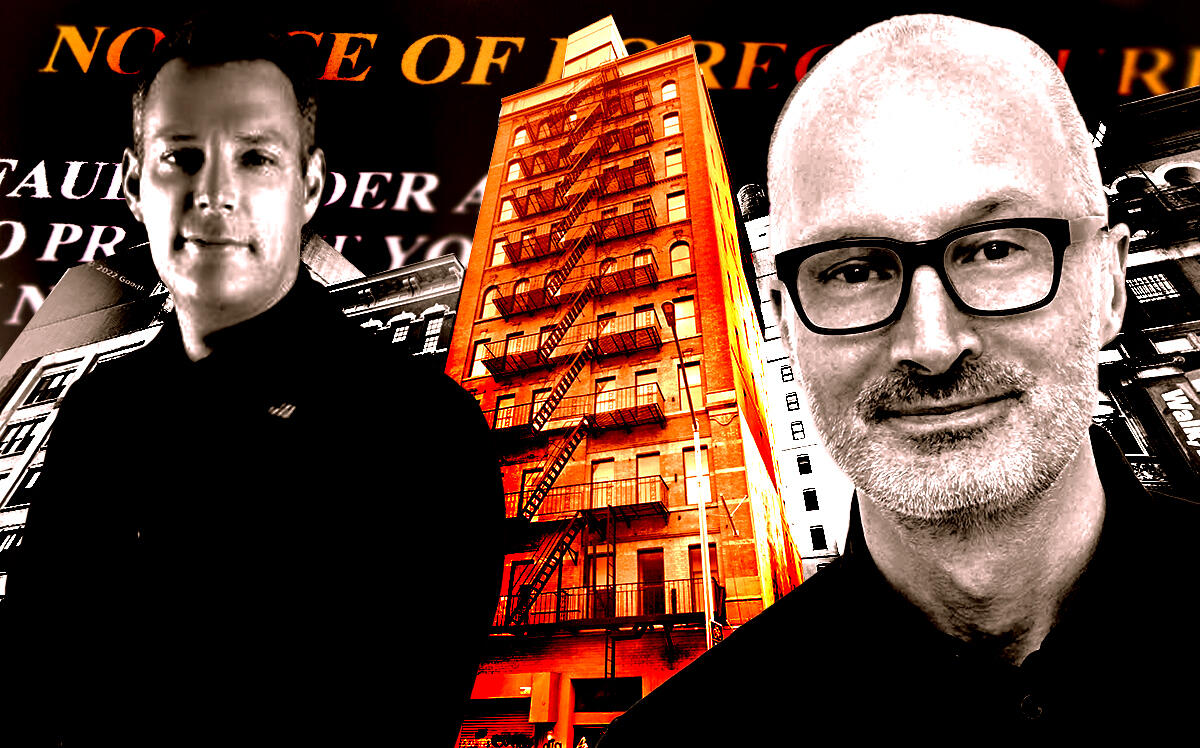 Ace Hotel on Bowery lands $80M refinancing
Ace Hotel on Bowery lands $80M refinancing
Trending
Bowery micro-hotel faces foreclosure, $10M judgment
Former flophouse at 225 Bowery mired in debt, legal dispute with Ace Hotel chain

After eight years, a developer’s quest to redevelop a Bowery flophouse appears to be all flop and no house.
David Paz’s Omnia Group has spent most of the last decade converting the old brick tenement building at 225 Bowery into a niche hotel on Manhattan’s fast-gentrifying Lower East Side. But after weathering a series of starts and stops — including operating the hotel as a homeless shelter during the pandemic — Omnia has been slapped with a $10.4 million judgment in a dispute with its former management partner, and one of its lenders is moving to foreclose on the property.
The odyssey began in 2014, when records show an LLC tied to Omnia purchased the ten-story tenement building between Stanton and Rivington streets for $30.5 million. Omnia partnered with Ace Hotel, a hospitality chain specializing in artsy, off-the-beaten-path boutiques, to brand and manage the project as a 200-key “distilled-service micro-hotel,” the first in Ace’s “Sister City” line of minimalist accommodations.
In return for its services, Ace would receive 3 percent of the hotel’s annual gross revenue, plus certain performance-based bonuses. The contract was set to run for 10 years, followed by two five-year extensions that only Ace had the option to back out of.
Omnia renovated the aging building into a hotel, and took on an $80 million gap mortgage from Bank Hapoalim in March 2019. The Sister City hotel opened that month, but had to shut its doors just a year later due to the pandemic.
That’s when things went off the rails.
As a surge in New York’s homeless population pushed shelters to the brink, the city began making deals with owners of shuttered hotels to place people seeking housing in their properties. In May 2020, Omnia’s Paz emailed his counterparts at Ace about one such proposal for Sister City. Paz’s email read less like a question of consent than a notification of intent, Ace argued in arbitration filings.
“Let me know what role you see for Ace if and when I enter into [the homeless shelter agreement],” Paz wrote, according to filings.
The city paid the hotel a nightly fee of $110 per room between June 2020 and June 2021. Shortly after the homeless shelter deal ended, the owners rebranded the hotel as “Untitled at 3 Freeman Alley” and began renting rooms individually on Airbnb, according to the arbitration. Listings on Airbnb’s website advertise “urban hotel rooms in the heart of New York City,” but Ace Hotel claimed they violate its contract with Omnia, which dictates that only Ace can manage the property.

Screenshot of Untitled’s AirBnb page on Oct. 11, 2022 (Joe Lovinger)
The new revenue stream apparently was not enough to keep the hotel in the black, as its owners soon began missing payments on their gap mortgage. Bank Hapoalim declared the loan in default last October, and in April it filed to foreclose on the hotel and appoint a receiver. Omnia moved to dismiss the suit based on a technicality in the filing. The suit has not yet been resolved, and attorneys for neither side returned requests for comment.
While the courts hash out whether Omnia will lose the hotel, it is also mired in a dispute with Ace over the decision to operate it as a temporary homeless shelter.
In January, Ace filed for arbitration, alleging that Omnia had violated their contract by making the city the hotel’s operator. Ace claims it never consented to the decision, which it felt would hurt the hotel’s brand and future earnings.
The hotel operator further claims that Paz over-leveraged the hotel by taking on the $80 million gap loan, forcing him to pursue quick money against the long-term interests of their partnership.
In September, arbitrators awarded Ace $10.4 million and ordered the hotel owners to stop displaying trademarks associated with the Sister City brand. In a lawsuit filed last week to enforce the arbitration, Ace alleges that Omnia has neither paid up nor stopped displaying the branding.
For much of the 20th Century, the Salvation Army ran a low-cost hotel for men out of the property, one of many “flophouses” in the Bowery where one could rent a room, and little else, for next to nothing.
Read more
 Ace Hotel on Bowery lands $80M refinancing
Ace Hotel on Bowery lands $80M refinancing
 Stalled Bowery development site faces foreclosure
Stalled Bowery development site faces foreclosure
While they provided housing for thousands of low-income New Yorkers, the single-room occupancy buildings also came to be associated with vice and urban blight. Between the 1950s and 1980s, the city disincentivized and eventually banned construction of single-room occupancy buildings.
Between 1997 and the building’s sale to Omnia in 2014, the Salvation Army’s Chinatown Corps offered meals, classes and social services for seniors in the building’s bottom three floors.




